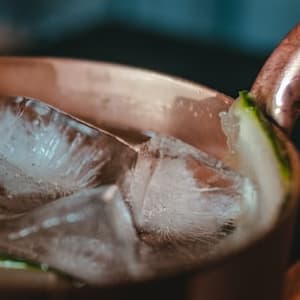hit the bottle: Idiom Meaning and Origin
What does ‘hit the bottle’ mean?
The idiom hit the bottle means to excessively consume alcohol, often in response to stress or emotional difficulties.

Idiom Explorer
An idiom meaning to consume a large quantity of alcohol, usually resulting in getting drunk or excessively intoxicated.
The idiom *in the drink* means to be in a difficult or unpleasant situation, often caused by one's own actions or decisions. It originates from the idea of someone falling into water or a drink, representing a sudden and unexpected mishap or trouble.
The idiom *hold one's liquor* means to be able to consume alcohol in large quantities without becoming drunk or losing control.
The idiom "hit it up" means to begin or start something, often with enthusiasm or energy.
The idiom "higher than a kite" means being under the influence of drugs or alcohol and feeling extremely intoxicated or euphoric.
The idiom "have a snootful" means to consume or drink a large amount of alcohol, often to the point of becoming intoxicated.
The idiom "have a jag on" means to be drunk or intoxicated. It is often used to describe someone who has consumed excessive amounts of alcohol.
The idiom "good drunk" refers to someone who is pleasant and enjoyable to be around when they are intoxicated.
The idiom "get high" means to experience a state of euphoria or an altered state of mind, often induced by drugs or alcohol. It can also refer to feeling a sense of excitement or exhilaration. The phrase is used figuratively to describe the feeling of being elevated or elated.
The idiom "fall off the wagon" means to resume a bad habit or addiction after a period of abstinence or recovery.
Intoxicating Origins
The idiom "hit the bottle" originated in the United States and is a colloquial expression used to describe excessive drinking of alcohol. This behavior is often used as a means of escaping from reality or dealing with stress and emotional difficulties. When someone "hits the bottle," they are turning to alcohol as a form of solace or to drown their sorrows. It is important to note that the exact origins of this idiom are uncertain, but there are a few theories that provide possible explanations.
One theory suggests that the idiom "hit the bottle" may have emerged during the Prohibition era in the early 20th century. This was a time when the production, sale, and distribution of alcoholic beverages were illegal in the United States. Despite the ban, illegal bars known as "speakeasies" appeared and thrived. People who frequented these establishments were said to "hit the bottle" as a way to indulge in the illegal activities surrounding alcohol. The phrase could have gained popularity during this time as a way to describe engaging in excessive drinking.
Another theory proposes that the idiom "hit the bottle" may have originated from the action of physically striking a bottle to open it. When a bottle is forcefully opened, it can create a distinct "hit" sound as the cap or seal is broken. This association between forcefully opening a bottle and excessive drinking could have led to the phrase "hit the bottle" being established, signifying the act of indulging in alcohol to an extreme extent.
Despite these theories, the exact etymology of the idiom "hit the bottle" remains uncertain. Like many idioms, it likely evolved through everyday usage and gained popularity in various social contexts. Regardless of its origins, the phrase is widely understood and used to describe the act of excessive drinking.
In relation to the idiom "hit the bottle," there are two other idioms that share a similar meaning or context. The first idiom is "tie one on," which also refers to excessive drinking of alcohol. Like "hit the bottle," "tie one on" suggests indulging in alcohol to an extreme degree. This idiom may have originated from the visual image of someone becoming so intoxicated that they need to physically tie themselves to something for support.
The second idiom related to "hit the bottle" is "bottle up." This phrase describes the act of suppressing or holding back one's emotions or feelings. In the context of excessive drinking, "bottle up" can be seen as a potential consequence of relying on alcohol as a coping mechanism. Instead of processing and addressing emotional turmoil or stress in a healthy manner, one may choose to "bottle up" their emotions and turn to alcohol for temporary relief.
Both "tie one on" and "bottle up" align with the theme of excessive drinking that is present in the idiom "hit the bottle." These idioms further emphasize the negative impact of relying on alcohol as a means to escape or cope with personal struggles. It is important to recognize the potential consequences of using alcohol in this way and to seek healthier alternatives for coping with stress and emotional turmoil.
Example usage
Examples of how the idiom "hit the bottle" can be used in a sentence:
- After a long day at work, he likes to hit the bottle and relax with a glass of whiskey.
- She hit the bottle hard after her relationship ended, drowning her sorrows in alcohol.
- When he's stressed out, he tends to hit the bottle and drink excessively.
More "Alcohol" idioms



